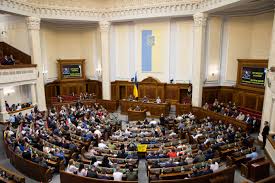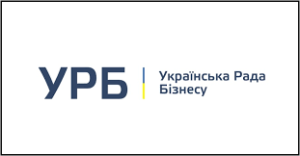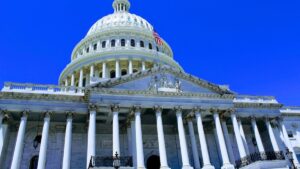
The Verkhovna Rada of Ukraine has adopted in the second reading a draft law on support for the development of viticulture and winemaking, said Acting Minister of Agrarian Policy and Food Taras Vysotsky.
“I am grateful to the people’s deputies for their unanimous support for the development of viticulture and winemaking! Bill 9139 – 311 votes in favor,” he wrote on Facebook.
The draft law “On grapes and viticulture products” (No. 9139), which the government registered in the Verkhovna Rada on March 22, is aimed at implementing the relevant EU regulations on viticulture and winemaking, oenological practices, production of flavored wine products, use and protection of geographical indications of wines.
“At the same time, the purpose of the draft law is to create a unified state information system, the Viticulture and Winemaking Register, which will include information on: grape producers; wine products; vineyards; mandatory declarations and other data on wine products provided for by this law, the entry of which is mandatory, which will ensure effective administration and state support for the viticulture and winemaking industry,” the explanatory note to the document says.
The document envisages the introduction of requirements for the production and circulation of wines, viticulture and winemaking products, and flavored wine products with geographical indications similar to current rules in the EU. In particular, it is not allowed to blend wine produced in Ukraine with imported wine, as well as wines produced outside Ukraine.
The draft law provides for the possibility of state support for viticulture and winemaking within the framework of the general laws “On State Support for Agriculture” and “On Peculiarities of Insurance of Agricultural Products with State Support” without any details, except for the principles of objectivity, equality and proportionality.
The document contains the principles for conducting inspections of wine production from the vineyard to the final product, defines the controlling institutions and their powers, and specifies sanctions, according to the explanatory note.

U.S. House Speaker Mike Johnson and his supporters are pushing for a vote on a bill to end political persecution aimed at demonstrating loyalty to former President Donald Trump, Axios reports.
“According to two lawmakers and two other GOP sources familiar with the situation, Johnson’s leadership team is calling for support for the End Political Persecution Act,” the report says.
It emphasizes that this is a direct response to the verdict of a jury in New York, which found Trump guilty of falsifying documents on all 34 counts.
The portal writes that bringing the bill to a vote is a demonstration of “how eager the Republican leadership in the House of Representatives is to support Trump.” According to Republican leaders, the former president has become the victim of a sham trial aimed at reducing his chances of re-election.
Axios believes that even if the bill is approved by the House of Representatives, it has no chance of being considered in the Senate, which is controlled by Democrats.
As explained in the publication, the head of state can only pardon federally convicted persons. Thus, even if Trump becomes president again, he will not be able to overturn the verdict of the New York court. The bill, if approved, could allow Trump to transfer the charges to a federal court with the possibility of further pardon in the event of a guilty verdict.

The $95.3 billion bill was passed after months of congressional gridlock jeopardized a major thrust of President Biden’s foreign policy.
President Biden was set to sign a $95.3 billion aid package for Ukraine, Israel and Taiwan on Wednesday, reaffirming U.S. support for Kyiv in its fight against Russia’s military attack after months of congressional gridlock threatened the White House’s main foreign policy thrust.
On Tuesday evening, the Senate voted overwhelmingly to approve the package, a sign of bipartisan support after growing policy divisions raised questions on Capitol Hill and among U.S. allies about whether the United States would continue to support Kyiv. The 79 to 18 vote gave Biden another legislative achievement to boast about, even in the face of an obstructionist House of Representatives.
“Congress passed my bill to strengthen our national security and send a message to the world about the strength of American leadership: We stand firmly for democracy and freedom, against tyranny and oppression,” Mr. Biden said Tuesday night, just minutes after the Senate vote.
He said he would sign the bill into law and address the American people on Wednesday “so we can start sending weapons and equipment to Ukraine this week.”
The White House first requested the security package in October, and officials explicitly acknowledged that the six-month delay has put Ukraine at a disadvantage in its fight against Russia.
“The Russians are slowly but successfully taking more and more territory from the Ukrainians and pushing them to the first, second, and sometimes third line of defense,” John F. Kirby, spokesman for President Biden’s National Security Council, said on Air Force One on Tuesday. “The short answer is yes, there has been damage done over the last several months.”
Nevertheless, the passage of the legislation ended an extraordinary period in Washington. Speaker Mike Johnson had to overcome fierce right-wing opposition to get it through the House of Representatives. The aid is split into four parts: one measure for each of the three US allies and another designed to sweeten the deal for conservatives, which includes a provision that could lead to a nationwide ban on TikTok.
The bill includes $60.8 billion for Ukraine; $26.4 billion for Israel and humanitarian aid to civilians in conflict zones, including Gaza; and $8.1 billion for the Indo-Pacific. It also includes sanctions against Iranian and Russian officials.
The House of Representatives also added a provision requiring the president to demand that the Ukrainian government repay $10 billion. The idea to include a portion of the aid to Ukraine in the form of a loan was another example of former President Donald Trump’s influence on Congress. Trump called for making any future aid to Ukraine a loan.
The White House tried to reach an agreement with Mr. Johnson in various ways for six months. Officials even agreed to some tougher measures at the US border when Mr. Johnson said he would not allow aid to Ukraine without border restrictions. But when Trump denounced the law, hoping to prevent Biden from winning the election, Republicans followed suit.
But when the Senate passed its own bill to provide $95 billion in emergency aid to Ukraine, Israel, and Taiwan without any immigration measures, it increased the pressure on Mr. Johnson.
https://www.nytimes.com/2024/04/24/us/politics/biden-ukraine-israel-aid.html

The Verkhovna Rada of Ukraine has adopted as a basis the bill №9083, providing for deregulation and detenization of the market of trade in used vehicles, said the head of the Verkhovna Rada Committee on Finance, Tax and Customs Policy Daniil Hetmantsev.
“Verkhovna Rada adopted as a basis the bill №9083 the initiator of which I am,” he wrote in his Telegram channel on Tuesday.
Getmantsev recalled that the market of used cars before the war was 1.7 million cars per year, in 2023 – 780 thousand.
“This year we expect 1.5 million and only 2.5% of this is sold in white. From the sale of a car in the “white” the state receives an average of 19.8 thousand UAH. From the sale in the “black” – 0″, – he wrote.
At the same time, the head of the parliamentary Committee reminds that for the work of the “white” market there is a hindrance – the requirement of additional registration of the car on the intermediary “with a bunch of unnecessary certificates”.
“The abolition of meaningless state registration of used cars by the trading organization on itself, even if it buys them as goods for resale – will be a pledge for the withdrawal of the market from the shadow, the expansion of the activities of “white” auto traders and the elimination of schemes by which the budget underpays taxes,” – commented the bill Getmantsev.
As reported, the bill № 9063 on the abolition of state registration of used cars on trade organizations that buy them as a commodity for further sale, registered in the Rada on March 6, 2023.
Among its co-authors are Hetmantsev, MPs Yaroslav Zheleznyak (Golos faction), Maryana Bezuglaya, Yevhen Bragar (“Servant of the People”), Dmytro Razumkov (non-faction).
Official car importers and dealers noted that deregulation of the used car trade market will not lead to an increase in prices, as the official market dictates prices and no one will pay more than a car costs.

Business associations under the auspices of the Ukrainian Business Council are asking to finalize the government’s updated draft law on the Economic Security Bureau (#10439), as it leaves unaccounted for important proposals that jeopardize the reboot of the BEB.
“The most critical of the unaccounted proposals is the composition of the competitive commissions for the recertification of personnel and the mechanism for conducting the recertifications,” the 17 associations said in a statement circulated Thursday.
In their opinion, the detailed mechanism of re-certification should be set out in the draft law, and the commissions themselves should have a predominant voice of international experts who have an impeccable reputation and are well versed in the problems of law enforcement agencies.
Among other ignored proposals, the business pointed out the strengthening of the analytical function of the Bureau by providing free access for the BEB to existing state information systems and establishing criteria for the effectiveness of the work of the renewed BEB and their constant monitoring.
In addition, the appeal notes, it is important to limit access to positions in the BEB to persons with a dubious reputation based on the principle of reasonable doubt, given the small number of corruption cases that have resulted in convictions.
It is also crucial to retain in the final version of the draft the right to an overwhelming vote of international experts when electing the chairperson of the OIE, the document says.
In addition, in order to establish safeguards against unlawful pressure on business by law enforcement agencies, simultaneously with the reset of the BEB, the business requires amendments to the Code of Criminal Procedure regarding the introduction of standards of prosecutorial activity, limiting the powers of the National Police and the BEB in terms of assigning instructions to SBU operatives, ensuring the possibility of appealing to the investigating judge against any actions or inaction of the investigator, inquirer, prosecutor.
In addition, the business proposes to introduce a ban on reopening proceedings on the same grounds and seizure of material assets not specified in the ruling of the investigating judge, to establish responsible storage and immediate return to the owners of seized property after the decision, to select a reasonable level of bail and interim measures.
Among other requirements – to impose on investigating judges the obligation to verify compliance with the requirements of jurisdiction and to return the terms of pre-trial investigation and the procedure for their extension in actual criminal proceedings, except for serious and especially serious crimes, referred to the jurisdiction of NABU.
At the same time, the associations noted that the updated government bill on the BEB took into account a number of proposals of the business community, in particular, the election of applicants for the post of the head of the Bureau by a commission with a predominant vote of international experts, immediate recertification of all employees of the Bureau and audit one year and three years after the appointment of a new head.
According to the forecast of Yaroslav Zheleznyak, the first deputy of the Rada’s specialized committee, the bill #10439 will be put to a vote in the first reading as early as Thursday.
BILL, BUSINESS ASSOCIATION, ECONOMIC SECURITY BUREAU, UKRAINE, БЕБ

The U.S. Senate has approved a temporary funding bill aimed at averting a government shutdown, previously approved by the House of Representatives, Reuters reported on Saturday.
The Senate, with a Democratic majority of 88 to 9, voted to pass the measure to avoid the fourth partial shutdown of the federal government in a decade, sending it to President Joe Biden to sign into law before a deadline of 12:01 a.m. Eastern Time (07:01 a.m. Kyiv time – IF-U).
Earlier, the House of Representatives voted 335 to 91 to fund the government through November 17, with more Democrats than Republicans supporting it.
“The American people can breathe a sigh of relief: There will be no government shutdown tonight,” Senate Democratic Majority Leader Chuck Schumer said after the vote. “From the beginning, Democrats have said that the only solution to avoid a shutdown is bipartisanship, and we are pleased that Speaker McCarthy has finally listened to our message.”
Democratic Senator Michael Bennett held up the bill for several hours in an attempt to negotiate a deal on further aid to Ukraine.
“While I would have preferred to pass the bill now with additional assistance for Ukraine, which has bipartisan support in both the House and Senate, it is easier to help Ukraine with an open government than if it were closed,” said Democratic Senator Chris Van Hollen.
Earlier it was reported that the bill on temporary funding does not include US assistance to Ukraine.